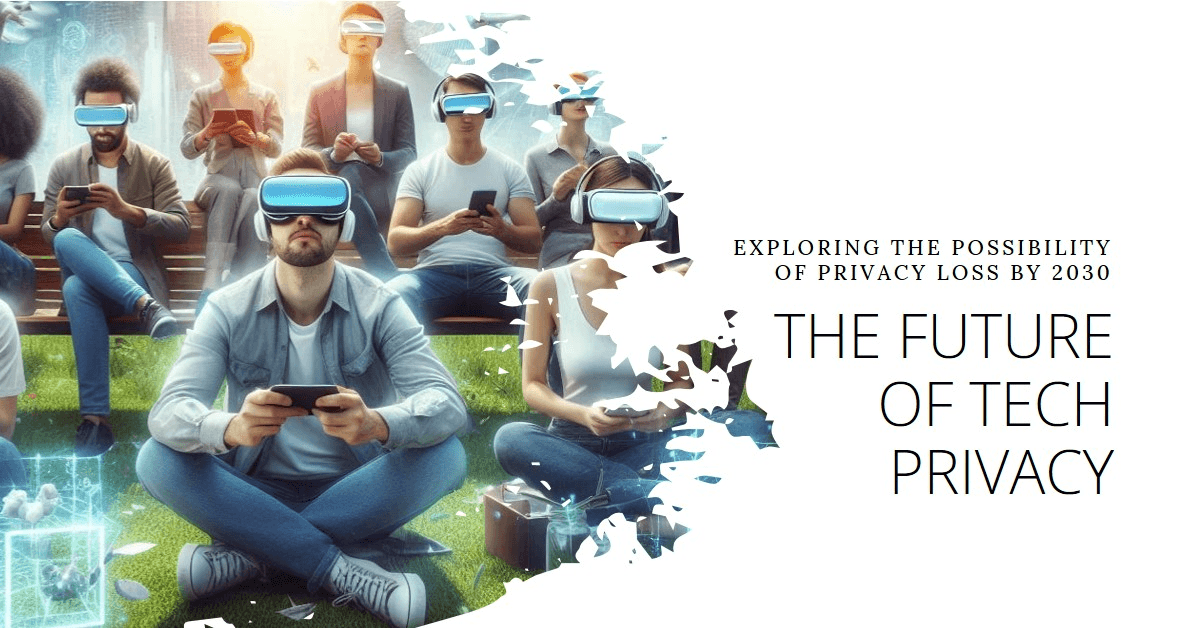In an era dominated by smartphones, applications, and digital platforms, user privacy has become a critical concern. As we inch closer to 2030, the question arises: will users of technology—be it applications, smartphones, or computers—lose their privacy entirely? With the rapid evolution of tech innovations, increased data collection, and the intertwining of our digital and real lives, this question has never been more relevant. This article delves into the future of tech user privacy and what we can expect by 2030.
The Current State of User Privacy

In 2024, tech users are already experiencing a significant reduction in privacy. Applications, from social media platforms to shopping apps, collect vast amounts of data. This data is not only limited to basic information like names or addresses but also includes behavioral data, such as browsing habits, purchase preferences, and even location data.
Smartphones have further blurred the lines between personal and private information. With GPS, microphones, and cameras constantly active, phones have become a window into users’ daily lives. Even though tech giants like Apple and Google have implemented stricter privacy policies, concerns about data breaches and unauthorized data collection persist.
For a deeper understanding of the implications of privacy loss, check out this detailed article on data privacy challenges.
Will Privacy Be Lost by 2030?
By 2030, many experts believe that tech users may experience even greater challenges in maintaining their privacy. Several factors contribute to this potential erosion of privacy:
1. Increased Data Collection
As technology becomes more advanced, the amount of data collected from users is expected to grow exponentially. Smart homes, wearables, and IoT devices will be commonplace, and with every connected device, more user data will be gathered. This data will no longer just include browsing habits or location but also biometric data like heart rates, sleep patterns, and even emotional responses.
2. Lack of Robust Privacy Laws
Many countries are still catching up with the pace of technological development. While regions like Europe have implemented the General Data Protection Regulation (GDPR), other nations lag in creating stringent privacy laws. By 2030, unless more comprehensive and global privacy regulations are introduced, tech companies will continue to have considerable freedom in collecting and using user data with little oversight.
3. Technological Integration in Daily Life
Technology is becoming more deeply integrated into everyday life. AI assistants like Siri, Google Assistant, and Alexa are gaining more control over users’ homes, schedules, and even health data. With such integration, it’s challenging to distinguish where the user’s personal life ends and the digital world begins. The more tech influences our daily lives, the harder it will be to protect individual privacy.
For more insights into how emerging technologies impact privacy, explore this article on AI and user privacy.
4. Corporate Control and Surveillance
Major tech companies, including Facebook, Google, and Amazon, have built their empires by harnessing user data. By 2030, their influence over digital platforms is likely to expand, giving them more power over users’ personal information. As these companies continue to grow, the debate around corporate surveillance will intensify, leading to concerns that users might not have any real control over their data.
Can Tech Users Protect Their Privacy?
While the outlook on privacy by 2030 might seem grim, there are steps that users and policymakers can take to safeguard personal information:
1. Adopting Strong Privacy Tools
Using encrypted messaging apps, VPNs, and privacy-focused browsers can help users protect their data from unwanted surveillance. These tools allow individuals to take back some control over their digital footprint. For example, browsers like Brave and search engines like DuckDuckGo offer users the ability to browse the web without being tracked.
2. Demanding Transparency
As consumers, tech users have the power to demand more transparency from companies regarding how their data is collected, stored, and used. With growing awareness about the dangers of unchecked data collection, many users are already calling for stricter policies and clearer user agreements.
3. Legislative Changes
Policymakers need to be proactive in implementing and enforcing robust privacy regulations. By holding tech companies accountable for protecting user data, governments can help prevent further privacy erosion. Regulations like the California Consumer Privacy Act (CCPA) have been a good start, but global solutions are required for widespread impact.
The Future of Privacy

By 2030, the fight for privacy will likely have reached a critical juncture. As technology continues to advance, and as our personal lives become more intertwined with digital platforms, the boundaries of privacy will be tested. However, with proper safeguards, privacy-focused innovations, and a collective demand for transparency, users can still protect their personal information.
The future might be digital, but that doesn’t mean privacy has to be sacrificed. Stay informed on the latest privacy trends and explore more content on digital rights and privacy at Epic Infinite.
Conclusion
As we approach 2030, tech users face a daunting reality: maintaining privacy in an increasingly connected world will be more challenging than ever. With the rise of data collection, limited regulatory frameworks, and increased corporate control, the protection of personal information is at risk. However, by staying vigilant, adopting privacy tools, and advocating for stronger laws, users can work toward a future where digital innovation doesn’t come at the expense of privacy.
For further reading, visit Epic Infinite’s in-depth exploration of privacy issues.










